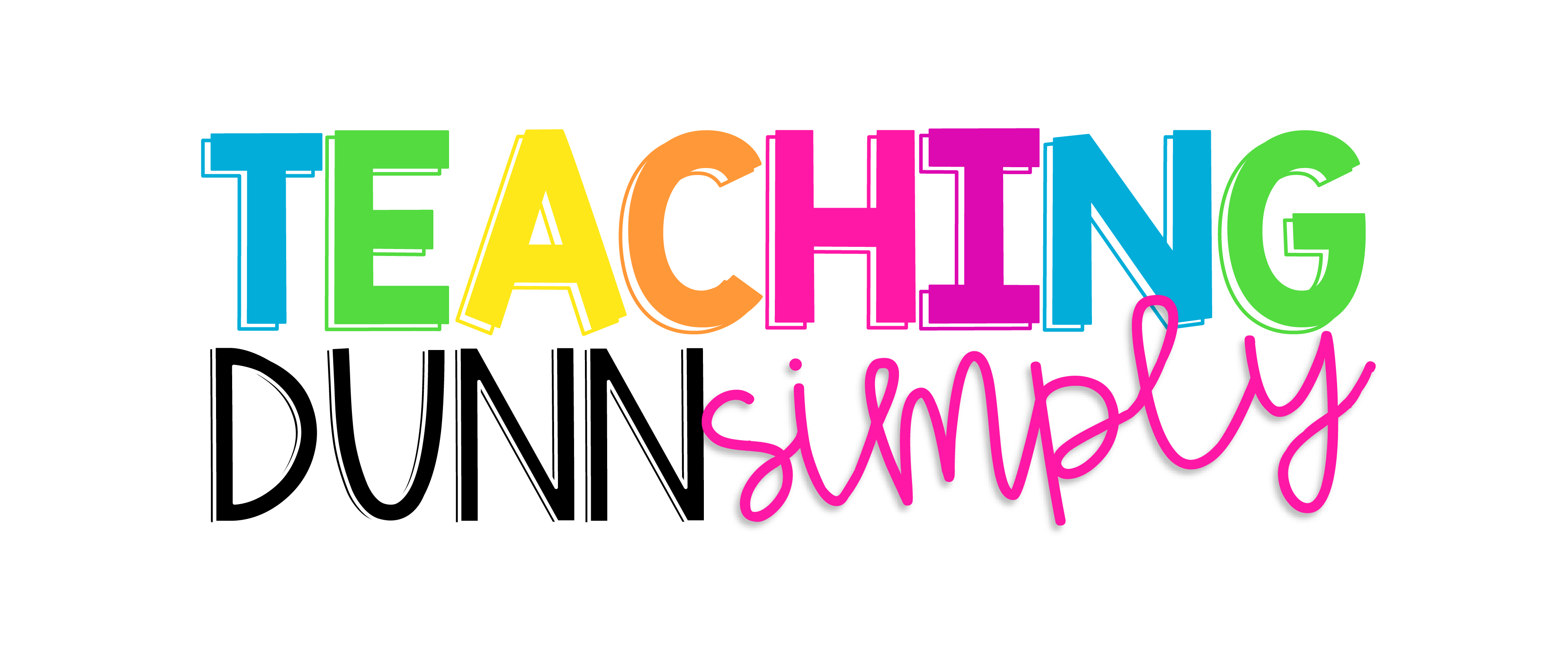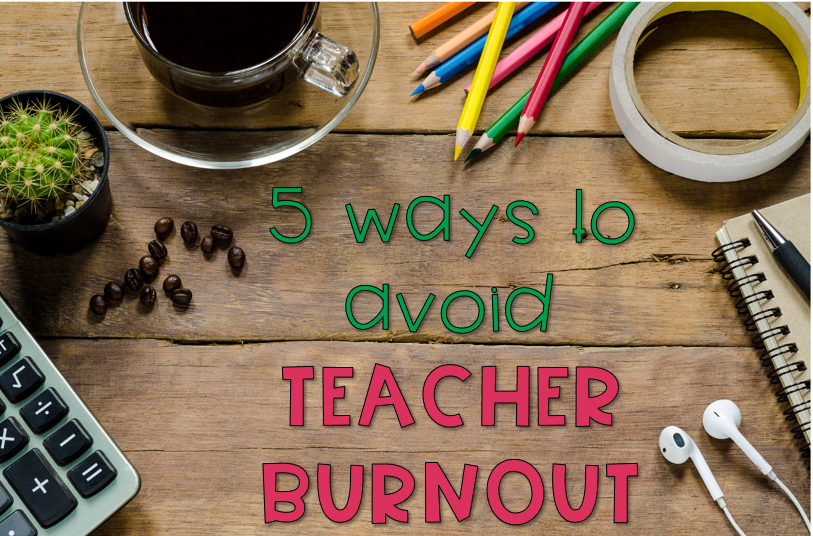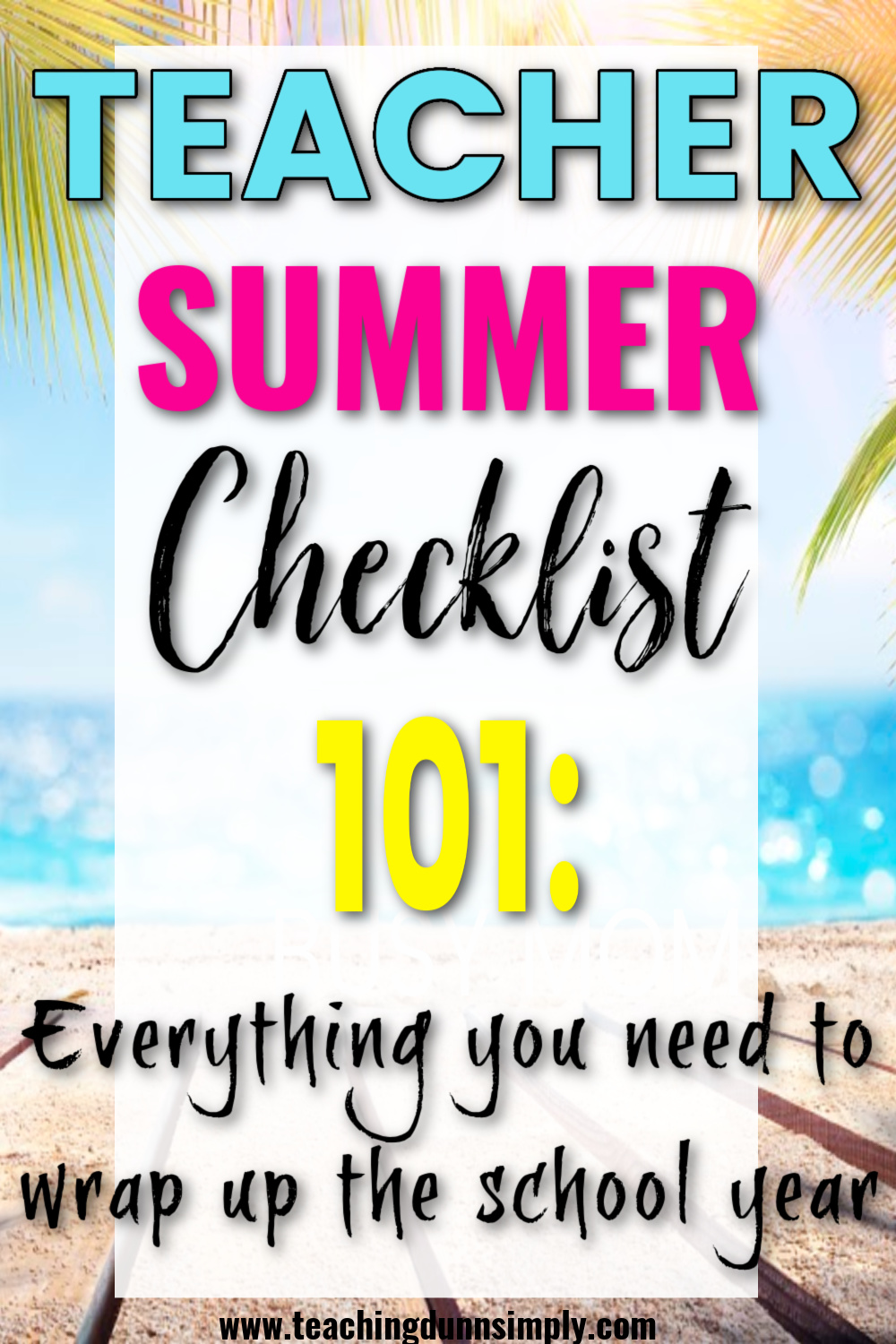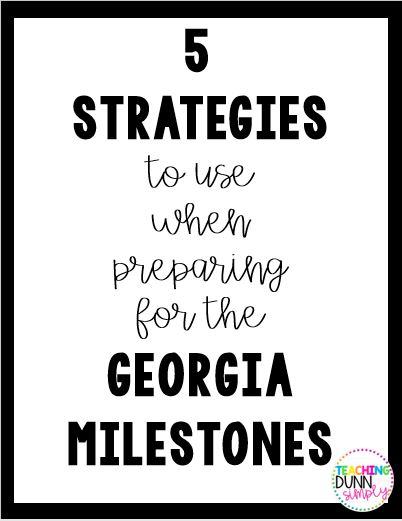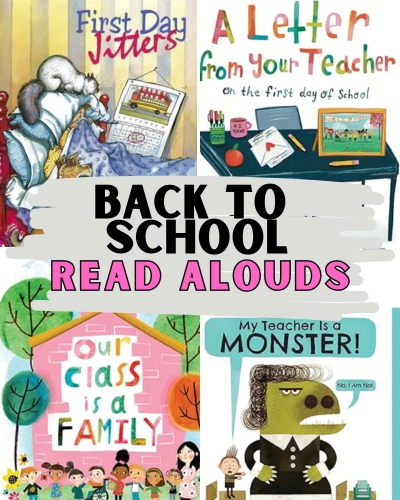- Home
- This and That
- Teacher Burnout
5 Strategies to Prevent Teacher Burnout
Teacher burnout...is that like a medical thing or what? When I first heard that you could avoid burnout and stress, I looked to Google to find out what the deal was. It is no secret that, for many, teaching is a thankless profession or that many teachers are leaving this wonderful profession. However, starting a teacher burnout prevention plan and implement teacher self-care strategies can help. These could be really important in helping more people stay in the teaching profession. I don’t know about you, but I often wake up thinking about school and go to bed thinking about school. I find this especially true working in a low-economic school. So many of our students experience terrible living conditions which can cause even more stress and worry for educators. If you can totally relate to this, and you are looking to avoid burnout, keep reading, dear teacher.
Signs of Teacher Burnout
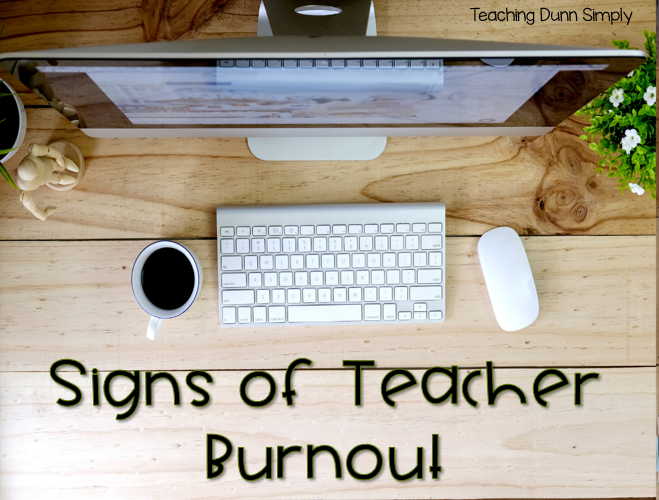
You always need to be aware of your stress levels and what stresses you out. If you can identify stress, you can go a long way in preventing stress. Here are just a few teacher burnout symptoms and signs of teacher burnout. Remember, every person is different and may experience different teacher burnout symptoms.
Thoughts of dealing with students or other teachers cause anxiety (or worsen it) to the point that you become ill.
Trouble sleeping or staying asleep
Severe fatigue
Trouble concentrating or completing a task
The feeling that you just can not keep going
Highly Emotional
If you feeling overwhelmed, please talk with someone. Talk with someone you can trust. Do not carry it around, this isn't good for your physical or emotional health!
Why are teachers so stressed out?
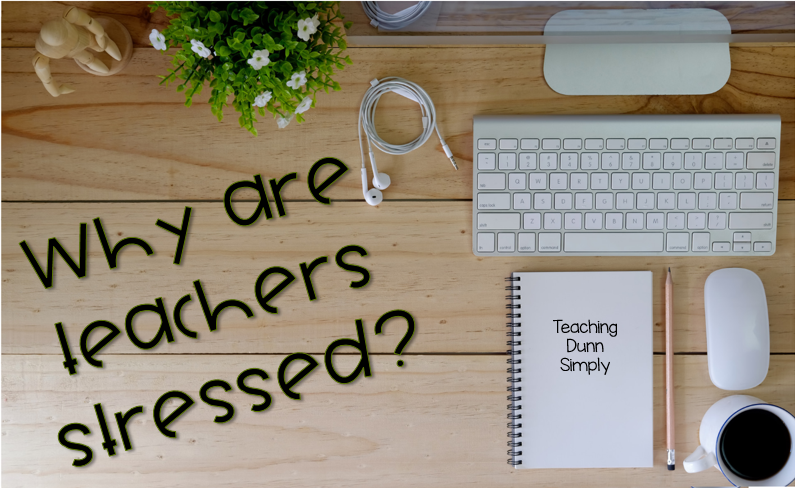
It takes a special person to work with children. However, it takes an exceptional person to be a great teacher. We are so far from being only instructors. Teachers are nurse, mom, dad, counselor, authority figure, friend, and protector. No wonder there are so many stressed-out teachers! Teachers are expected to perform countless tasks and perform them well. Teachers have to process and prioritize many tasks and worries. I have to admit that when I heard about teacher self-care strategies I thought, “it's going to take a lot of teacher self-care strategies to make me feel better.” I hope this teacher style blog post will help you avoid teacher burnout and help you with teacher stress management.
If you feeling overwhelmed, please talk with someone. Talk with someone you can trust. Do not carry it around, this isn't good for your physical or emotional health!
Develop Self-Care Strategies
The teacher burnout rate continues to climb higher and higher. Stress is a big reason for this. So, after thinking about my personal lack of teacher self-care, and having that teacher burnout feeling, I began considering how I could tweak my weekly routine so that I could shut down my teacher's brain after leaving school on Fridays. I made some minor adjustments, and I felt better. Now each week on Wednesday, I start planning for the upcoming week. On Thursday I make my copies for the upcoming week and Friday I get my math centers ready to go. This has made a big, big difference! However, would you consider this “teacher self-care”?
Develop an "Avoid Teacher Burnout" Prevention Plan
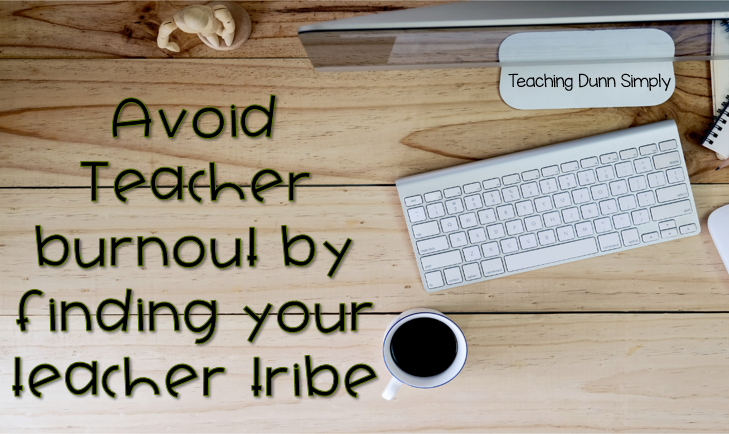
Think about your teacher burnout prevention plan. What makes you happy? Why did you start teaching? Teacher self-care is different for every teacher! It can be some much needed Netflix time, spending time with your family, outside time, listening to a podcast, or preparing for the upcoming week in your classroom. If you are a spiritual person, check out these scripture cards. Anything that reduces your stress level is self-care!
Find Your Teacher Tribe!
Don't forget to take care of yourself! Find a teacher tribe...people who laugh a bunch, are uplifting, and positive! There are always going to be papers that need grading, copies need to be made, and task cards to be laminated. But remember to take the time when you need it! Don’t get burned out. Your students need you too badly! You are too valuable as a person and teacher to get burned out or physically ill.
Self-Care Strategies for Teachers
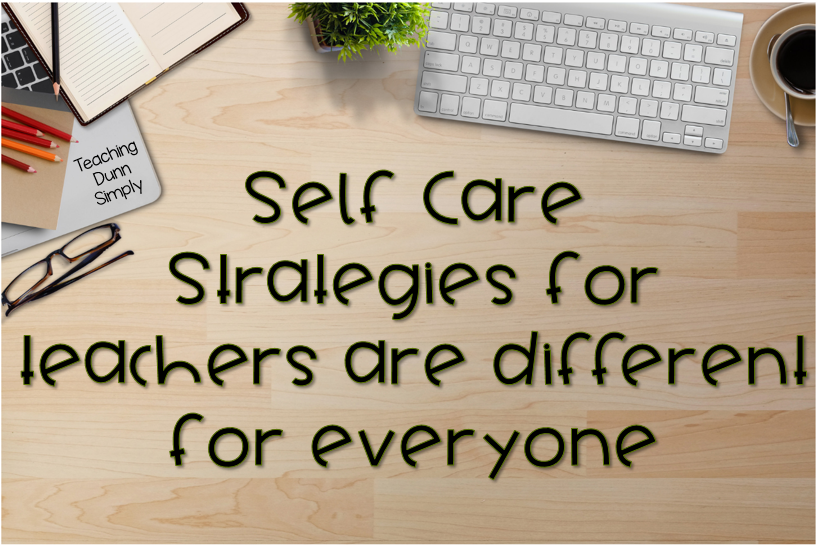
Reconnect with nature.
Go for a walk. Pop in your earbuds and listen to your favorite podcast or some music.
Work and then take a break. Set small achievable goals in your classroom and when you have accomplished that, stop and take a break!
Talk to a friend you can trust! Ask someone who has experience with your situation and you feel safe speaking to.
Check out these Teacher Self-Care Quotes
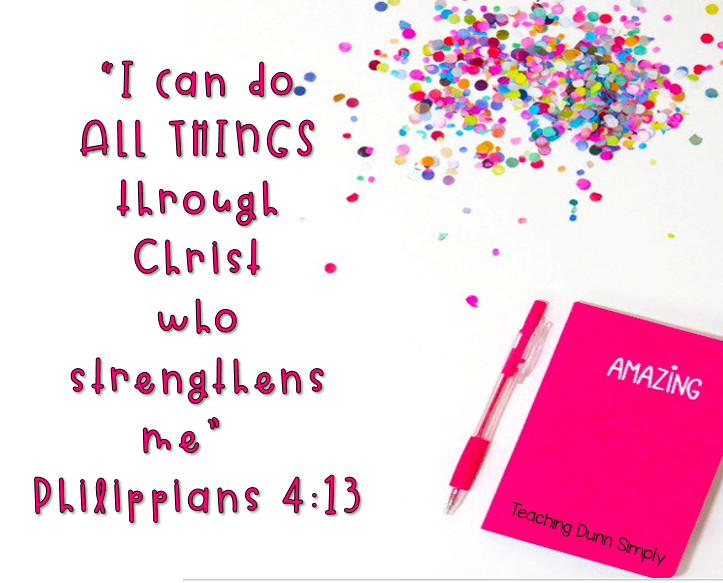
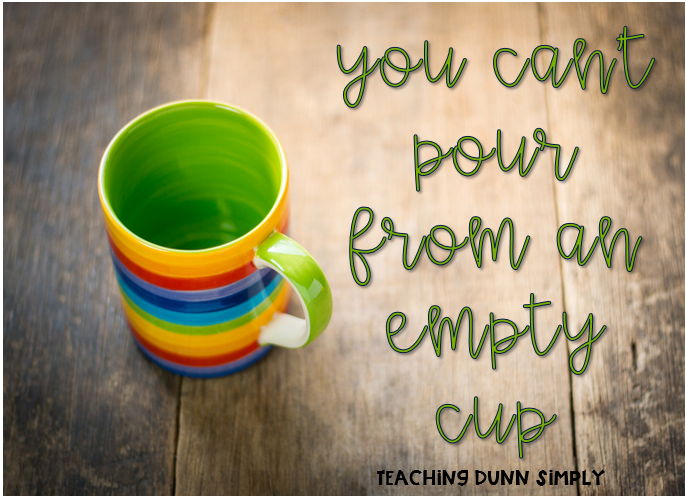
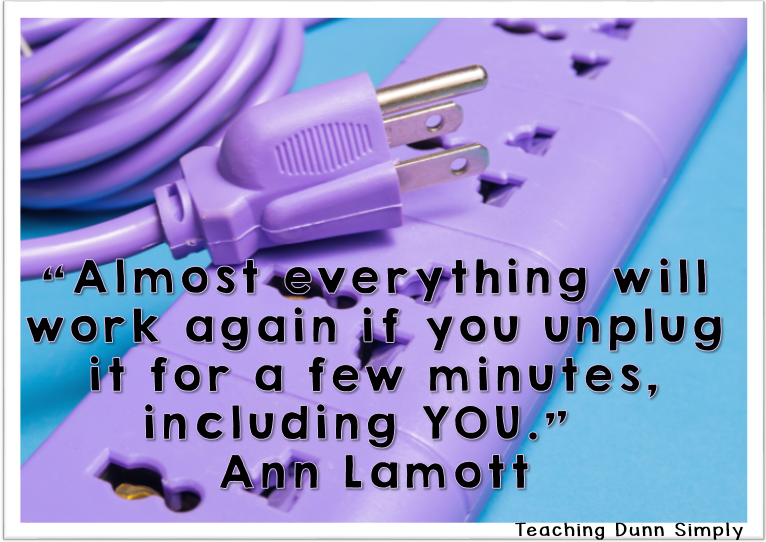
If you feeling overwhelmed, please talk with someone. Talk with someone you can trust. Do not carry it around, this isn't good for your physical or emotional health!
